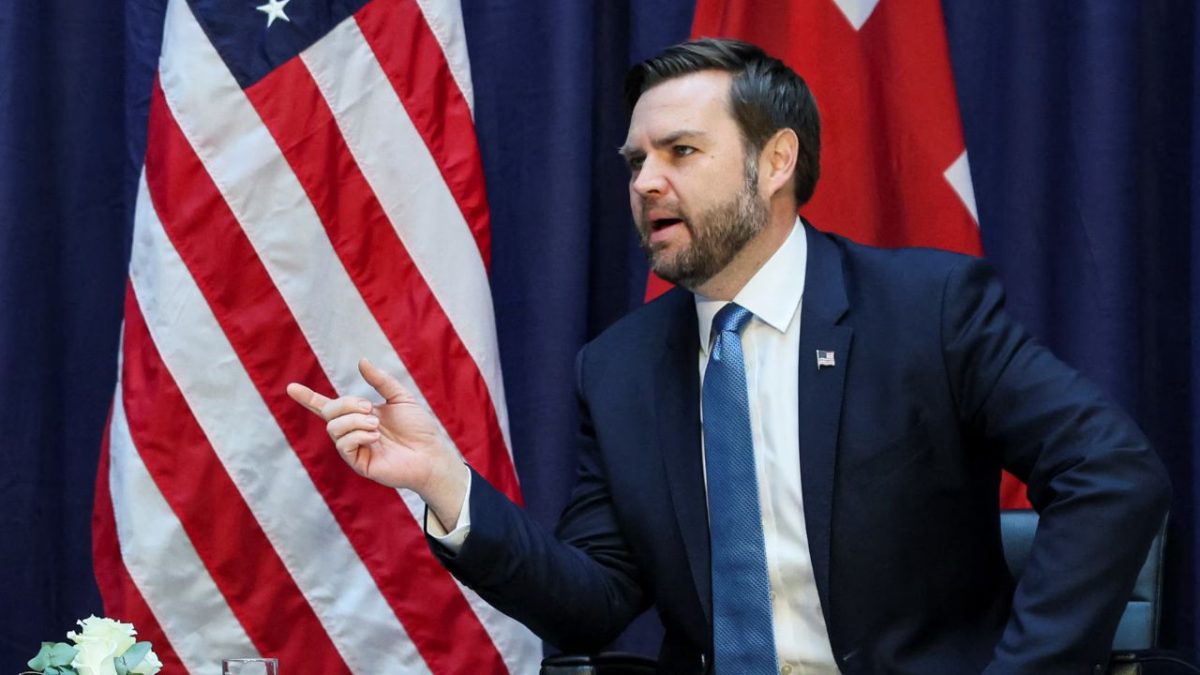In a group chat with senior government officials, US Vice President Vance allegedly expressed his distaste for “bailing Europe out again” regarding the Trump administration’s intentions to bomb Houthi fighters.
In the group chat, Vance expressed doubt that US President Trump understood “how inconsistent this is with his message on Europe right now.”
He also added, “There’s a further risk that we may see a moderate to severe spike in oil prices. I am willing to support the consensus of the team and keep these concerns to myself. But there is a strong argument for delaying this by a month, doing the messaging work on why this matters, seeing where the economy is, etc.”
About half an hour after delivering the message, Vance told Defence Secretary Pete Hegseth: “If you think we should do it, let’s go. I just hate bailing Europe out again.”
The group chat functioned as a virtual war room, with detailed information regarding weapon packages, targets, and the planned timings for the 15 March strike on Yemen, which killed more than 50 people.
Vance sent the message on 14 March, the day before Trump announced that he had ordered a series of “decisive and powerful” attacks on the Houthis, an Iran-backed, US-designated terrorist organisation in Yemen that had targeted commercial and military vessels in the Red Sea for two years.
Two days earlier, Trump had declared 25% tariffs on steel and aluminium, and the European Union quickly countered, throwing the allies into a trade war.
Just two days before the bombings in Yemen, Trump threatened to impose a 200% tariff on wine, champagne, and other alcohol imported from Europe if the European Union did not remove a whisky levy.
Impact Shorts
More ShortsLast month, Vance criticised European nations for censoring free speech and political opponents, while mostly neglecting the issue of how to end the Ukraine conflict.
Speaking to European political leaders, military officers, and diplomats at the Munich Security Conference, Vance surprised the audience by dismissing the risk of Russian political interference in Europe, taking a stance similar to Trump, who has railed against US intelligence agencies’ claims that Russia interfered on his behalf in the 2016 election.
Following Vance’s allegation that European leaders would not participate in any Ukraine peace negotiations, an emergency EU conference was convened.
In an interview with Fox News, Vance dismissed peacekeeping assistance from “some random country that hasn’t fought a war in 30 years” — interpreted by politicians across the divide in London as an attack on the UK, which has been pushing such a plan alongside France.
After facing sharp criticism from London and Paris, Vance took to X to clarify his remarks, insisting that he had never named France or Britain in his statement.
“Both countries have fought bravely alongside the US over the last 20 years, and beyond,” he posted, attempting to calm the growing diplomatic storm.
Vance later defended his comments in front of UK Prime Minister Sir Keir Starmer and US President Donald Trump in the Oval Office.
He said: “Look, I said what I said, which is that we do have, of course, a special relationship with our friends in the UK, and also some of our European allies, but we also know that there have been infringements on free speech that actually affect not just the British.”
Starmer replied, saying: “Well, we’ve had free speech for a very, very long time in the United Kingdom, and it will last for a very, very long time.
“Certainly, we wouldn’t want to reach across US citizens, and we don’t, and that’s absolutely right, but in relation to free speech in the UK, I’m very proud of our history there.”


)

)
)
)
)
)
)
)
)



